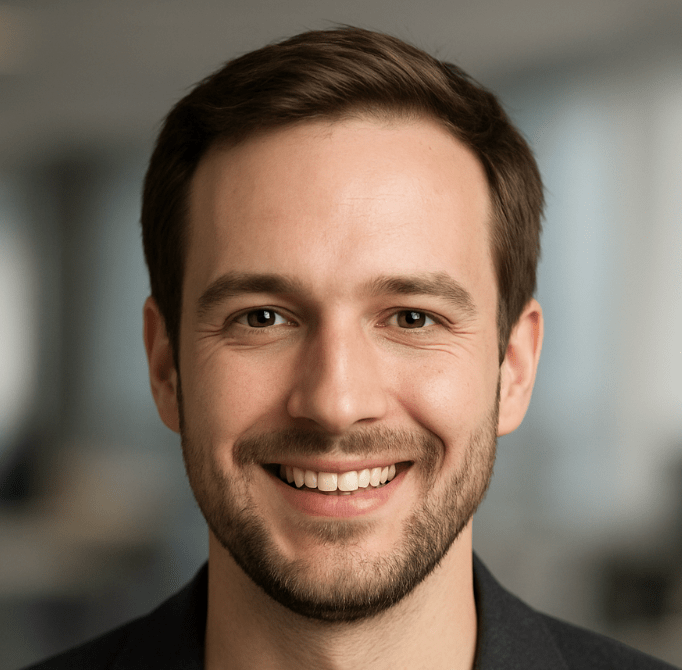Last week, I attended a cybersecurity conference where something remarkable happened during the Q&A session following a presentation on emerging threats. A young professional, probably in her mid-twenties, asked a question that completely reframed how everyone in the room was thinking about the problem. Instead of asking about technical solutions, she asked about the human impact of the security measures being proposed and whether they would disproportionately affect certain user populations.
Her question sparked a 20-minute discussion that touched on accessibility, digital equity, and the social responsibility of cybersecurity professionals. It was exactly the kind of broader perspective that our industry needs more of, and it came from someone who represents the next generation of security leaders.
This experience reinforced something I've been observing throughout our award program: the emerging generation of cybersecurity professionals is bringing fresh thinking and innovative approaches that are reshaping our field in positive ways. They're not just learning existing security practices; they're questioning assumptions and developing new approaches that address contemporary challenges.

Take Alex Chen, a recent graduate who joined a financial services company as a junior security analyst. Within six months, she had identified a significant gap in the organization's approach to mobile device security. But instead of just reporting the problem, she developed a comprehensive solution that included technical controls, user education, and policy recommendations. Her approach considered not just the security requirements, but also user experience, accessibility needs, and the diverse ways that employees actually use mobile devices for work.
What impressed me about Alex's work wasn't just the technical quality, but her holistic thinking. She understood that effective security solutions need to work for all users, including those with disabilities, different levels of technical expertise, and varying access to technology resources. This kind of inclusive security thinking is becoming a hallmark of emerging security professionals.
Or consider Marcus Johnson, who started his cybersecurity career as a security operations center analyst at a healthcare organization. He noticed that the SOC's alert prioritization system was generating alert fatigue among analysts, leading to important indicators being missed. Instead of accepting this as an inevitable part of SOC operations, Marcus researched human factors engineering and cognitive load theory to understand why the existing system wasn't working effectively.
His solution involved redesigning the alert interface to present information in ways that align with how human analysts actually process information under stress. He incorporated color psychology, information hierarchy principles, and workflow optimization techniques that he learned from fields outside of cybersecurity. The result was a 40% reduction in missed critical alerts and significantly improved analyst job satisfaction.
Marcus's approach illustrates another characteristic I see in next-generation security leaders: they're bringing interdisciplinary thinking to cybersecurity challenges. They don't see cybersecurity as an isolated technical domain; they understand it as a multifaceted field that intersects with psychology, sociology, design, business, law, and many other disciplines.
This interdisciplinary perspective is particularly valuable when addressing some of cybersecurity's most persistent challenges. Take social engineering, for example. Traditional approaches focus primarily on technical controls and awareness training. But emerging professionals are incorporating insights from behavioral psychology, social psychology, and user experience design to develop more effective prevention strategies.
Dr. Priya Patel, a recent PhD graduate who joined a cybersecurity research team, is studying how cultural factors influence susceptibility to different types of social engineering attacks. Her research is helping organizations develop more targeted and effective awareness programs that account for cultural context rather than assuming one-size-fits-all approaches.
The next generation of security leaders is also bringing different perspectives on work-life integration and sustainable career development. They've watched previous generations struggle with burnout and high turnover rates, and they're determined to create more sustainable approaches to cybersecurity work.
I've seen young professionals advocate for better team rotation policies, implement peer support programs, and push for recognition of different types of contributions beyond just technical achievements. They understand that sustainable cybersecurity requires sustainable cybersecurity professionals.
Technology adoption is another area where emerging professionals are making significant contributions. They've grown up with cloud computing, mobile devices, and social media as integral parts of their lives. They understand these technologies not just from a security perspective, but as users who have experienced their benefits and limitations firsthand.
This user perspective helps them develop security solutions that are more aligned with how people actually want to use technology. Instead of viewing user behavior as a problem to be controlled, they see it as context that should inform security design decisions.
Take the example of Jordan Kim, who developed a new approach to password policy for her organization. Instead of implementing increasingly complex password requirements that research shows are counterproductive, she designed a system based on passphrase principles, password manager integration, and risk-based authentication. Her approach improved both security outcomes and user satisfaction because it aligned with how people actually manage passwords in practice.
The global perspective of emerging security professionals is also noteworthy. They've grown up in an interconnected world where cyber threats, business operations, and professional relationships transcend national boundaries. This global mindset is helping create more collaborative and coordinated approaches to cybersecurity challenges.
I've observed young professionals building international networks, participating in global threat intelligence sharing initiatives, and developing security solutions that work across different regulatory and cultural contexts. They understand that cybersecurity is inherently a collaborative global challenge that requires collective response.
Diversity and inclusion is another area where the next generation is driving positive change. They're not waiting for organizations to become more inclusive; they're actively creating more welcoming and equitable environments. They're starting employee resource groups, mentoring programs, and outreach initiatives that are expanding participation in cybersecurity careers.
This commitment to diversity isn't just about fairness; it's about effectiveness. Emerging security leaders understand that diverse teams make better decisions, develop more innovative solutions, and are better able to understand and address the needs of diverse user populations.
The entrepreneurial spirit of many next-generation security professionals is also creating new opportunities and solutions. They're starting security companies, developing innovative tools, and creating new service models that address unmet needs in the cybersecurity market.
But perhaps most importantly, they're bringing optimism and energy to a field that can sometimes feel overwhelming and negative. They see cybersecurity not just as a defensive necessity, but as an enabling capability that can help organizations and communities achieve their goals safely and securely.
This positive vision of cybersecurity's role is creating more engaging and sustainable career paths. Instead of viewing cybersecurity work as a series of problems to be solved, they see it as an opportunity to build better, safer, and more equitable digital experiences for everyone.
The next generation of security leaders is also more comfortable with uncertainty and continuous learning. They understand that cybersecurity will always involve evolving challenges and that professional success depends on adaptability rather than mastery of static knowledge.
This growth mindset is creating more resilient and innovative approaches to cybersecurity challenges. Instead of being overwhelmed by the pace of change, they see it as an opportunity for continuous improvement and innovation.
As I interact with emerging cybersecurity professionals through our award program and other initiatives, I'm consistently impressed by their combination of technical competence, broader perspective, and commitment to positive impact. They're not just the future of cybersecurity; they're actively shaping its present.
Organizations that recognize and support these emerging leaders will have significant advantages in attracting talent, developing innovative solutions, and creating sustainable cybersecurity programs. The next generation of security leaders is ready to contribute; they just need opportunities and support to do so.
The future of cybersecurity is in excellent hands.


